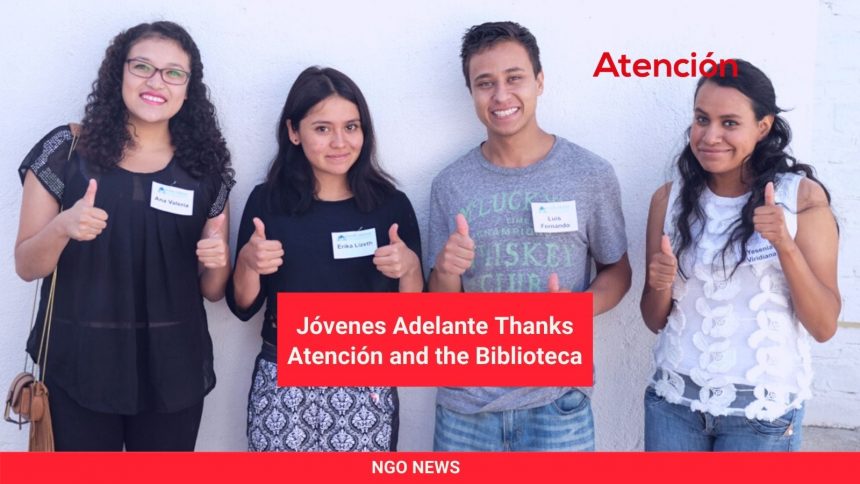By Don Krim
First, a heartfelt thank you. Four years ago I bought a copy of “Atención” for the first time. An article about Jóvenes Adelante (JA) caught my attention, and I promptly became a sponsor, mentor, an English tutor, development director, and now president. JA and most every other NGO in San Miguel de Allende have for years benefited from the generosity of the editors of Atención in providing free publication space for sharing of information and heartfelt stories with the entire Atención readership. Thank you!
A recent important notice in the Biblioteca spotlighted a dilemma that now faces not only the Biblioteca but several other NGOs in San Miguel and all of Mexico. Unless deeply involved in the NGO world on a management level it is unlikely one would know the specific implications that changes in tax laws going into effect in 2021 have had on those NGOs that are also Donataria Autorizadas (DA). The designation allows Mexican taxpayers to receive tax-deductible receipts. DAs are already subject to a higher level of regulation and oversight than other NGOs.
Managed strategic adjustment and restructuring is healthy but challenging for any organization.
If your frame of reference (accurate or not) of how a non-profit raises most of its funds is your typical holiday gala event, with a dinner, entertainment, and perhaps a silent auction; or a small store or service like Atencion that also generates revenue, the new law will come as a shock. The new tax law, as JA understands it, now considers that those revenues are not direct donations to the charitable mission, and therefore, if they exceed 50 percent of annual gross revenues, they will be taxed at 30 percent or risk loss of DA status.
The paper trail required under the law to verify that revenues and expenses are precisely aligned with the mission, using the most restrictive interpretation of the words in charter documents, has kept many a DA executive director and accountant awake at night. This is true in part because history has shown that laws of this kind are enacted without accompanying concrete government policies nor guidance, and they often evolve for years. For a responsible board of directors and executive director this mandates taking the most conservative possible interpretation of the law at any moment until more is learned and known.
Policies or program elements may need to shift on a dime. The level of administrative requirement that any government requires for an NGO is exhaustive. For Jóvenes Adelante and others those requirements are multi-national. That is a luxury and JA is fortunate. Navigating change can be easier for JA as we do essentially and effectively one thing–supporting scholars into and through higher education. That said, JA too had to adjust to the new law in small but significant ways.
So as I write this an hour before the deadline submission I am grateful for now to be able to do so via Atencion and the Biblioteca.
For information on donating, mentoring, or tutoring English, please contact donkrim@gmail.com.

